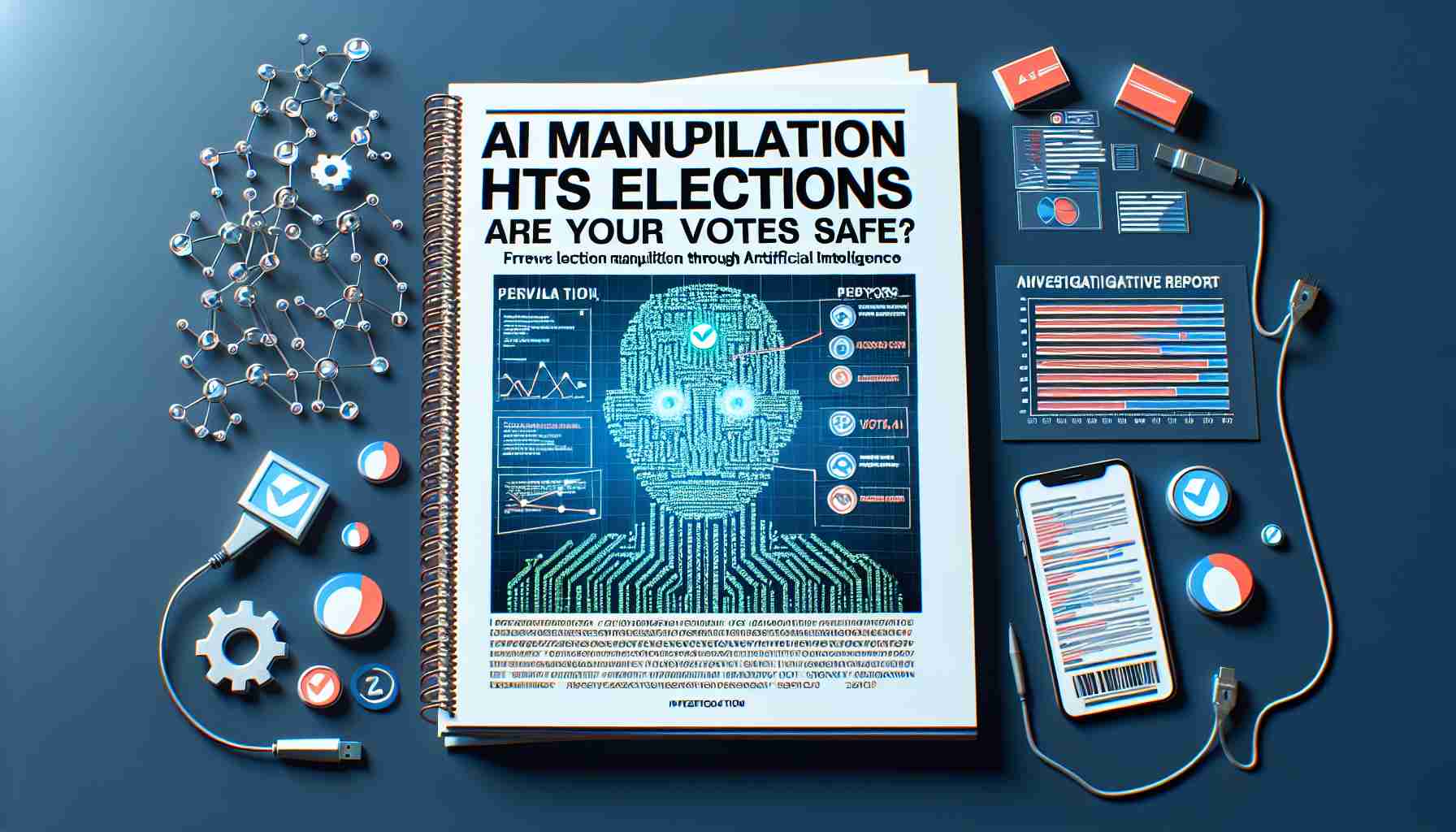The Impact of AI on Global Elections
As voters across the globe leave polling stations, the influence of artificial intelligence looms large over the electoral landscape. In recent months, there have been alarming incidents of AI-generated misinformation aimed at manipulating voter sentiment in several election cycles.
One striking example emerged in January when New Hampshire voters received unexpected phone calls resembling President Biden urging them to abstain from participating in the state’s primary, just days away. This unsettling message was crafted using deepfake technology, sparking significant concern about the potential for electoral interference through fake media in 2024. Hany Farid, a professor specializing in media manipulation, highlighted the rising apprehensions regarding such deepfake scenarios just before elections.
Interestingly, the Biden deepfake was created by a Democratic consultant hoping to raise awareness of AI threats, resulting in severe consequences for him including a hefty fine. Despite the fear, the anticipated wave of devious AI creations largely did not materialize as predicted. Instead, the prevalent use of AI revolved around meme generation, with politicians utilizing humorous and sometimes outrageous AI-created content to sway public opinion.
In Indonesia, a political party even utilized AI to bring back the image of a former dictator to endorse its candidates, demonstrating the lengths to which some factions might go. Similarly, in India, AI memes mocking political opponents proliferated ahead of crucial elections, revealing a new front in political propaganda where traditional defamation concerns seem to be sidestepped. Overall, while the threat of sophisticated deepfakes remains, the subtle manipulation of narratives through AI appears to be taking center stage in shaping public discourse.
The AI Revolution: Transforming Global Elections in 2024
The Impact of AI on Global Elections
The intersection of artificial intelligence (AI) and electoral processes is rapidly evolving, with profound implications for how democracies function worldwide. With the advent of new technologies, AI is not only changing how campaigns are run but also how voters are influenced and informed. As we approach critical elections in 2024, understanding these dynamics is crucial.
AI in Election Campaigns: How It’s Being Used
Campaigns are increasingly adopting AI tools for voter outreach, data analysis, and message targeting. By analyzing vast amounts of data on voter demographics and sentiments, campaigns can tailor their messages more effectively. This personalization can lead to increased voter engagement, although it raises ethical questions about privacy and voter manipulation.
1. Data-Driven Insights: AI algorithms process voter data to identify key issues and tailor messages that resonate with specific demographics. This is particularly important in diverse societies where voter priorities can differ widely.
2. Chatbots and Virtual Assistants: Many political campaigns now utilize AI-driven chatbots to answer voter queries in real-time, providing information about candidates and policies while also gathering feedback.
Pros and Cons of AI in Elections
Pros:
– Increased Engagement: AI can enhance voter engagement through personalized communication strategies.
– Efficiency: Campaigns can run more efficiently by automating processes such as data collection and analysis.
– Better Targeting: AI helps target undecided voters more precisely, potentially increasing voter turnout.
Cons:
– Misinformation Risks: The ability to create convincing fake content poses a significant risk to the integrity of elections.
– Manipulative Strategies: There are ethical concerns around the use of AI for voter manipulation, as highlighted by recent scandals involving deepfakes and misleading information.
– Data Privacy: The collection of personal data by campaigns raises significant privacy implications that are yet to be fully regulated.
Innovations and Trends on the Horizon
As we move closer to pivotal elections, several trends and innovations are emerging:
– Enhanced Deepfake Detection: Researchers and tech firms are developing advanced algorithms to detect deepfake content, aiming to preserve the integrity of information shared during campaigns.
– Regulatory Frameworks: Governments are starting to acknowledge the potential risks of AI in elections and are working on creating regulatory policies to combat misinformation.
– Public Awareness Programs: Initiatives are being developed to educate voters on recognizing AI-driven misinformation and understanding the implications of AI in political campaigns.
Use Cases Around the World
Different countries are showcasing unique applications of AI in election scenarios:
– Indonesia: A political party used AI to resurrect the image of a controversial former leader to rally support, demonstrating the creative (if ethically questionable) uses of AI in politics.
– India: The emergence of AI-generated memes mocking political rivals reveals a new landscape where satire and humor serve as tools for political discourse.
Limitations of Current AI Applications
While the capabilities of AI are expanding, several limitations must be addressed:
– Quality of Data: AI’s effectiveness relies heavily on high-quality data. If the data is biased, it can lead to skewed results and ineffective campaigns.
– Understanding Voter Psychology: AI can analyze behaviors but may not fully grasp the nuances of voter psychology, which can vary significantly between cultures and contexts.
Predictions for Future Elections
Experts predict that as AI technologies continue to advance, their role in elections will only grow more prominent. Voters can expect to encounter increasingly sophisticated tools aimed at influencing their decisions. A strong emphasis will likely be placed on developing ethical standards and transparency in AI usage within political contexts.
For updates on how AI is shaping the future of elections, visit AI for Election Watch.
In conclusion, the impact of AI on global elections is multifaceted and intricate. As technology evolves, so too must our understanding and regulations surrounding its use in the democratic process, ensuring that the principles of fair elections are upheld in the age of artificial intelligence.
